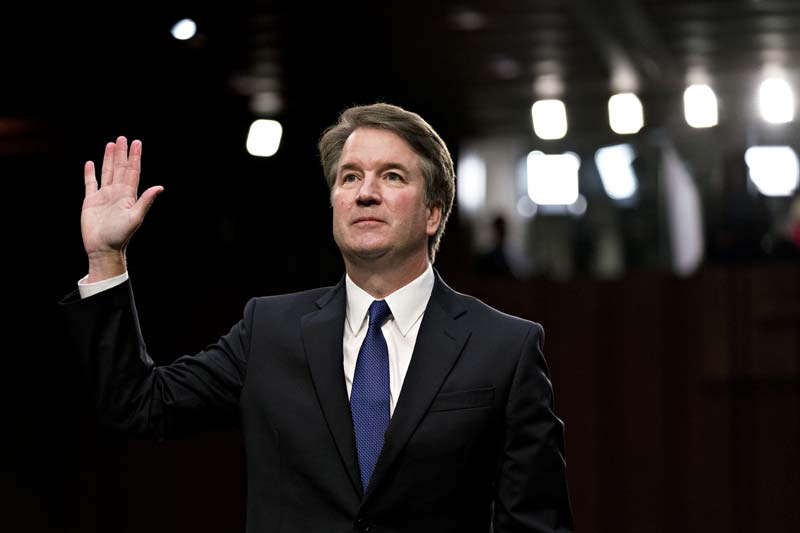 Andrew Harrer for Bloomberg
Andrew Harrer for Bloomberg
• There will be less change than you expect. Most Supreme Court decisions are boring, technical and decided by easy majorities. That will still be true with Kavanaugh on the bench.
• But in the big cases, Anthony Kennedy, who served as a swing vote and often joined the left, will now be replaced by Kavanaugh. Kavanaugh is not as hard right as many of his critics (and some of his boosters) fear or hope. But it's likely that a number of issues that might have been 5-4 wins for the left will now be 5-4 wins for the right. And because it only takes four justices to agree to hear a case, adding Kavanaugh could bring in cases that might have escaped scrutiny in the past. This seems especially likely with regard to Second Amendment cases, where Kavanaugh is stronger than Kennedy.
• With regard to Roe v. Wade — which is really what this entire, embarrassing circus was about, with all the charges and countercharges just being talking points — it's hard to say. Kavanaugh told the senators that Roe is "settled law." That's true, in a sense. But Plessy v. Ferguson, which upheld segregation, or Bowers v. Hardwick, which allowed states to treat gay sex as a felony, were both settled law until they were overturned.
And Justice Sonia Sotomayor told senators that the Second Amendment as an individual right was settled law after District of Columbia v. Heller but then took the anti-Second Amendment side in McDonald v. Chicago the next year. Even so, overturning Roe would be a huge deal, and I don't think the court has the stomach for it. There may be a bit of chipping around the edges, as in the 1992 case of Planned Parenthood v. Casey, but not much. It will take at least two more pro-life justices on the court before Roe is at risk.
• Strange new respect for judicial minimalism. As Harvard Law professor Adrian Vermeule remarked, "Law review editors: brace for a tidal wave of legal academic theories supporting judicial minimalism, Thayerianism, and strong — very strong — theories of precedent. Above all: the Court must do nothing without bipartisan agreement, otherwise it is illegitimate." The past half-century's enthusiasm for judicial activism will vanish, as legal academia turns on a dime to promote theories that will constrain the court until a left-leaning majority returns, at which point they'll turn on a dime again.
• New disrespect for the court: The Supreme Court has not always been held in the high esteem it has enjoyed in recent decades. When it was blocking progressive legislation and frustrating President Franklin D. Roosevelt's New Deal, it was derided as "nine old men," and schemes to evade its rulings were widespread. Roosevelt even threatened to "pack" the court with additional justices to ensure his policies were upheld. That effort failed, but a chastened Supreme Court started upholding New Deal programs immediately after, in what was called "the switch in time that saved nine."
If the court shifts right as expected, you can also expect legal academia and the news media, both of which lean very heavily to the left, to shift quite rapidly from near worship of the court to nonstop denigration. Some on the left are already talking openly of packing the court with additional seats, as Roosevelt tried to, if they get back in power. Others are talking about impeaching Kavanaugh, because, well, of course.
As George Mason University Law School's Adam White notes, we may see a rerun of the "Impeach Earl Warren" campaigns of the 1960s, only from the left. (Though, to be fair, the move to impeach Warren was led by Democrats, too, of the segregationist variety.)
Of course, the shrieking hysterics surrounding this Supreme Court appointment, as bad as they are, will likely pale beside the shrieking hysterics we'll see if, as seems likely, President Donald Trump has a chance to replace aging liberal heroine Ruth Bader Ginsburg. So there's that to look forward to, anyway.
(COMMENT, BELOW)
Glenn Harlan Reynolds, a University of Tennessee law professor, is the author of The New School: How the Information Age Will Save American Education from Itself and is a columnist at USA TODAY.


 Contact The Editor
Contact The Editor
 Articles By This Author
Articles By This Author